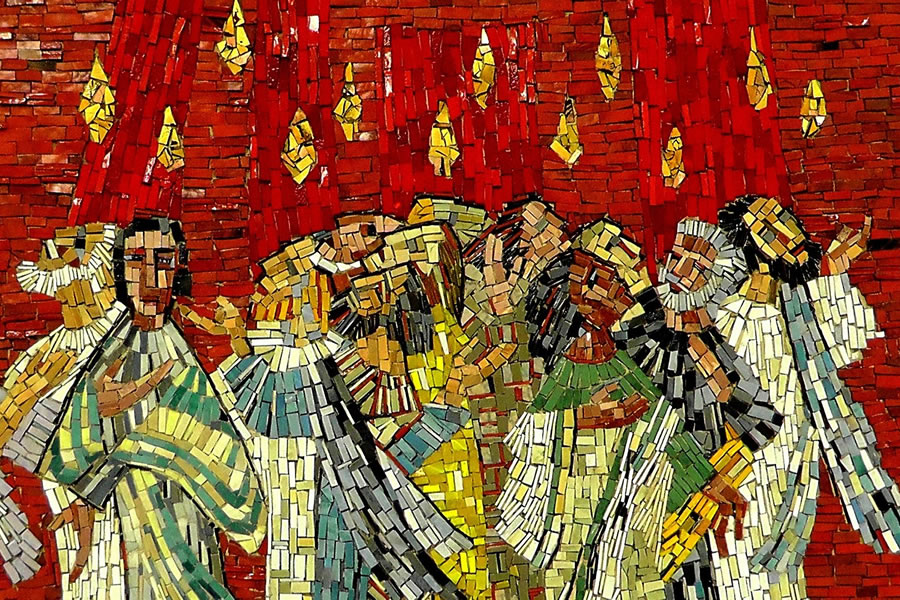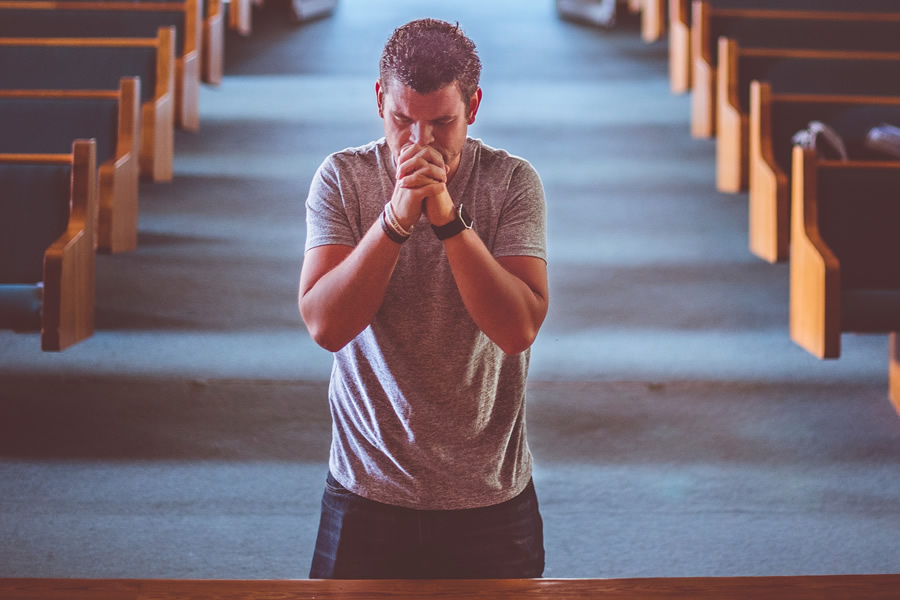
Guardini: The Dissolution of the Modern World
05-28-2023Weekly ReflectionFr. Romano Guardini & Fr. John LankeitOne of the thinkers who had great influence on Pope Benedict XVI was Fr. Romano Guardini. Below is an excerpt about the challenges we face as Christians in this postmodern world.
From Fr. Romano Guardini’s The End of the Modern World: “The Dissolution of the Modern World”:
The Faith of Christian men will need to take on a new decisiveness. It must strip itself of all secularism, all analogies with the secular world, all flabbiness and eclectic mixtures. Here, it seems to me, we have solid reasons for confidence. The Christian has always found it difficult to come to an understanding of modern attitudes, but we touch an issue here which needs more exact consideration. We do not mean that the Middle Ages was an historic epoch fully Christian in nature, nor do we mean that the modern world was an age fully un-Christian.
READ MORE
The four hundred years of the Vatican Secret Archive – Lux in arcana The propensity of the Church for memory
05-21-2023Weekly ReflectionInterview with Cardinal Raffaele Farina by Roberto RotondoEminence, the Secret Archive is four hundred years old, but has collected documents that are much more ancient. Why has the Church always felt the need to preserve the acts and documents of its business in a systematic way? From the earliest days of the Church of Rome, as the Liber Pontificalis recalls, the popes used to preserve in their own ‘scrinium’ (archive) the gesta martyrum, the liturgical codices, the memoirs of the episcopal consecrations, donations made to the Bishop of Rome and to the Christians in the early centuries. The need arose from the necessity to pass on the memory of the early Church after the persecutions and the ‘administrative’ need of the Roman Church itself, which of course wanted to know the witnesses of the faith who died for Christ (its best treasure of faith) and the action of the pastors and the faithful in Rome. From the fourth century onwards the Archive of the Church of Rome was enriched with documents, codes, provincial books, formulas of oaths, certificates of consecration of churches or foundations of abbeys, papyri relating to the correspondence sent to the popes from the emperors of the East, first, and then the West, pastoral and administrative and other writings, as is well demonstrated by the Liber diurnus Romanorum Pontificum, an ancient chancellary code form, owned by the Vatican secret archive which dates from the late eighth or early ninth century.
READ MORE
Rectitude of Intention
05-14-2023Weekly ReflectionThe life of the first Christians and their witness to the world makes known to us their quality and their character. Their norm of conduct was not to take the easy way out, or opt for the more comfortable line or the more popular decision but rather did they seek to fulfill completely the will of God. They ignored the danger of death… they forgot how few they were, they never noticed how many were against them or the power or strength or wisdom of their enemies. Their power was greater than all of that: theirs was the power of him who had died on the Cross and risen again. [ii] They had their gaze riveted on Christ, who gave his life for all men. They were not seeking their own personal glory, nor the applause of their fellow citizens. They always acted with a right intention, because they had their eyes fixed on the Lord. That is what allows St. Stephen to say at the moment of his martyrdom: Lord do not take their sin into account…[iii]
READ MOREThe Great Tempter
05-14-2023From the desk of Fr. VillaIn his useful book on the devil called, The Great Tempter, Cardinal Dionigi Tettamanzi, gives us ten salutary points by way of a “decalogue against temptation”:
READ MOREIdeology of Gender as “Secular-Religion”
05-07-2023From the desk of Fr. VillaGender-ideology is the fastest growing “religion” in this country. Like many religions, its “theology” involves a transformation: the moment in which a person transforms from one gender to another. Converts to this faith abandon their old lives and embrace a whole new one: their previous identities no longer exist. They are dead names. They believe that they themselves are a god with the power to control nature and, if you think about it, this should be cause for concern because it is a recipe for extremism. People who believe they are a god tend sometimes to react very badly when told that they are not. There is no greater mental illusion than the illusion of being a god, and this is exactly what this ideology teaches its followers: you are a god, you can change nature with your will and thinking.
READ MORE
The False Religion of Biosecurity
05-07-2023Weekly ReflectionIn the Catechism of the Catholic Church (CCC) we find the following: under the First Commandment it teaches Idolatry not only refers to false pagan worship. It remains a constant temptation to faith. Idolatry consists in divinizing what is not God. Man commits idolatry whenever he honors and reveres a creature in place of God. (2113)
Under the Fifth Commandment it teaches: Life and physical health are precious gifts entrusted to us by God. We must take reasonable care of them, taking into account the needs of others and the common good. (2288) Also: If morality requires respect for the life of the body, it does not make it an absolute value. It rejects a neo-pagan notion that tends to promote the cult of the body, to sacrifice everything for its sake, (emphasis added) to idolize physical perfection and success at sports….(2289)
READ MORE